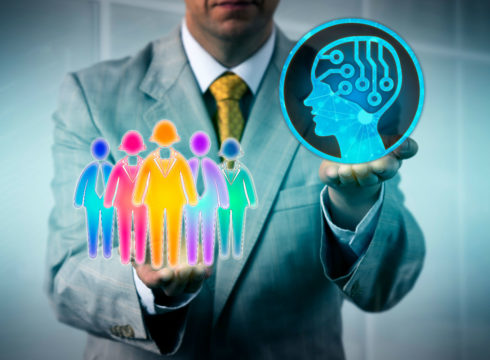These technologies can help HRs devise proactive hiring strategies
Employing AI, ML help organisation focus on their recruitment campaign
It helps to recruit the best candidates without biases
Inc42 Daily Brief
Stay Ahead With Daily News & Analysis on India’s Tech & Startup Economy
Imagine having an archetype of the perfect employee to help your company find the top talent and the best fit for your team or, being able to predict a candidate’s performance and distinguished potential leaders in the making. While most organisations have access to large amounts of data, very few use it optimally in their recruitment strategies.
Today, companies and HR professionals have myriad tools and technologies at their disposal but few fare artificial intelligence (AI) technology to make the recruitment and talent assessment processes smarter than ever before. The combination of AI, machine learning (ML), and data analytics are powerful tools that can assist recruiters to assess the skills and abilities of candidates and take the right hiring decisions.
Various public and private resources provide massive amounts of data, which combined with advanced predictive analysis can provide HR teams with actionable insights. These insights can help them devise proactive hiring strategies and eliminate outdated practices for a highly focused and data-driven approach.
From Sourcing To On-Boarding Candidates
Employing predictive analytics can help the organisation identify where they should focus their recruitment campaign in order to optimise costs and outcomes. Consider the example of a campus recruitment drive, for instance.
Clarity on the requirements for the job and pragmatic assessment of campuses to target can make the campus hiring less time consuming, more effective and successful. HR teams can then gather detailed insights from campus recruitment, such as which colleges or streams must they target in the future, to find the perfect fit for a job role.
Applying predictive analytics to the hiring process helps recruiters find a set of relevant metrics to assess candidates and measure their performance against that of the top performers in the company.
Further, one of the most significant benefits of employing an AI-driven solution for hiring is that it helps recruit the best candidates without biases that otherwise may cloud the recruiter’s judgement when going about the process through offline methods.
More importantly, automated recruitment solutions running on algorithms and predictive analytical models can forecast hiring outcomes such as which candidate will be best for what role, the potential chances of an employee resigning in the future, etc.
Moreover, the assumption that AI or automated recruitment or assessment solutions will replace HRs is not accurate at all. In fact, what these solutions do is take over the mundane, time-consuming process, like going through multiple applications and candidate profiles, scanning large amounts of data, defining data points and parameters for candidate assessment, etc.
AI-driven platforms or software employ ML and deep learning models for pattern recognition and learning by trial and error to teach itself how to manage tasks, as opposed to step-by-step programming.
Thus, ML software can automate tasks such as analysing and reviewing past and current reports, among others. This allows managers and recruiters to focus on improving their overall hiring strategy and target the right sources to find high-quality talent by leveraging the insights and recommendations provided by AI.
Using Assessments For Precise Evaluation
Talent assessment platforms can be extremely helpful in evaluating the cognitive abilities, skills, as well as specific behavioural qualities of prospective candidates, thus saving a great deal of time for HR managers and recruiters.
Consequently, recruitment analytics as a tool allows recruiters to include much broader hiring parameters through customised assessments for each different role and level, which then allows them to select the right candidates possessing the desired qualities and skill sets for the role.
Advanced tools like video-based assessment and psychometric tests integrated into a customised assessment platform can ensure even better outcomes during the hiring process by allowing recruiters to have a 360-degree view of a candidate’s qualities.
Such tests can help accurately determine whether an applicant fits the organisation’s culture, how well they can adapt to different working conditions, and whether they are capable of taking on leadership roles in the future.
With the nature of jobs constantly evolving, the skills and qualities required of candidates are also changing simultaneously. As a result, a large number of organisations across the globe continue to face an acute shortage of talent. In such a scenario, it becomes even more important for companies to target their hiring strategies to find employees with specific skill sets that match job roles and requirements.
Adopting advanced tools and platforms driven by AI, automation, machine learning, and analytics can prove to be a great investment in the long term, enabling companies to acquire the best possible talent in the market, achieve higher rates of employee retention, and ultimately, stay ahead of the competition.
Note: We at Inc42 take our ethics very seriously. More information about it can be found here.


